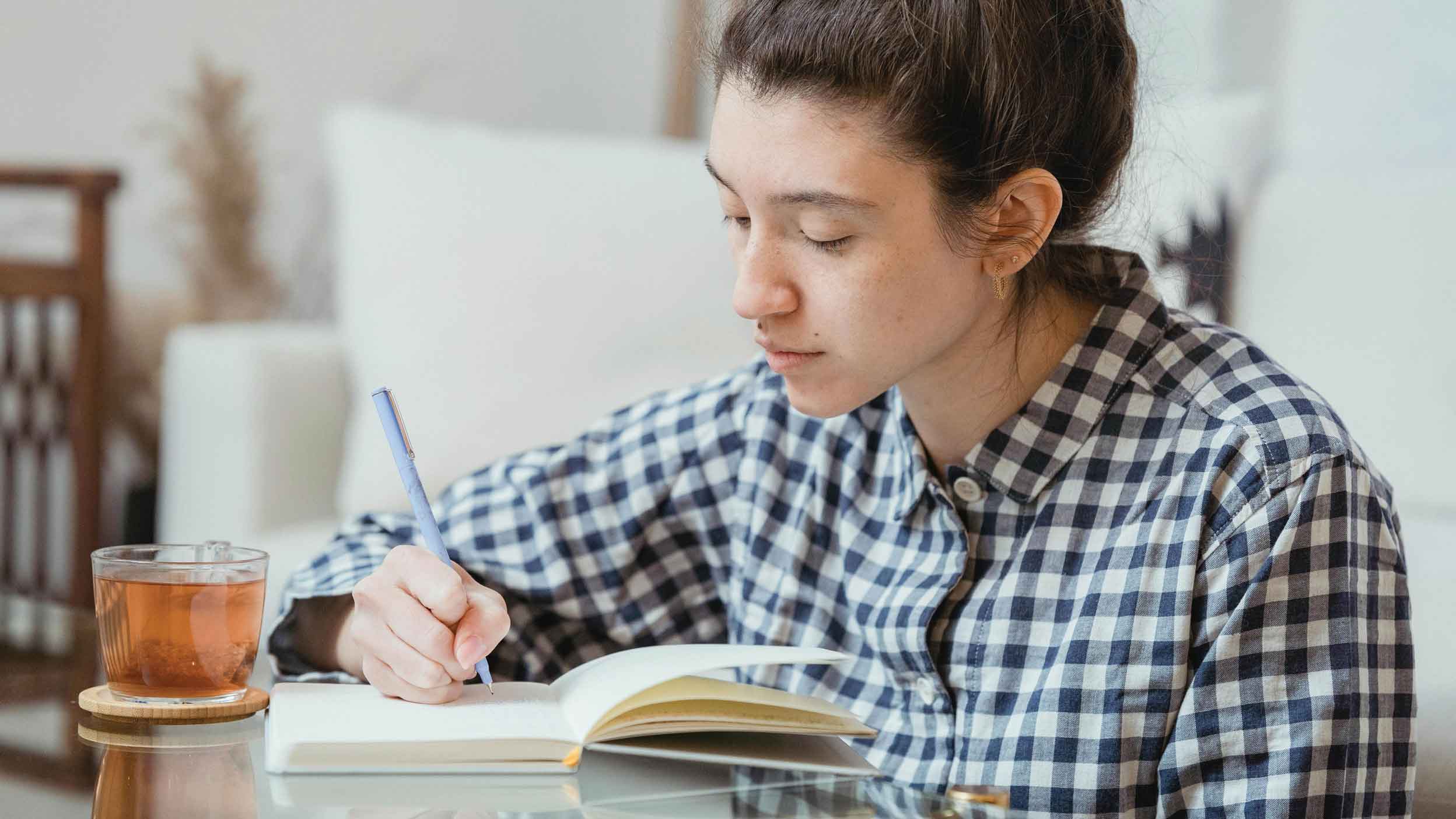How to Handle Heavy Periods
During your menstrual cycle, you may experience a varying degree of flow – from light to heavy. The amount of flow can also fluctuate from day-to-day, and month-to-month based on cycle stage, stress levels, or simply due to changes in body/your age.
Learning how to manage heavy periods is something every woman might have to deal with, which is why it’s so important to understand the ins and outs of your menstrual cycle. Embarking on this journey can help you come to terms with and find the cause of your heavy period and create a personal care kit to get you through your cycle.
Experiencing a heavier period doesn’t have to put a damper on your quality of life. Self-compassion and understanding your needs can go a long way during this time. While you may feel blah during your period, having some extra downtime to rest will leave you feeling refreshed and ready to return to your routine.
Looking to kick-start your cycle?
Everybody is different, including yours, while some women experience periods that are four days long with moderate-to-light bleeding others may experience periods that last over a week with heavier bleeding or irregularly experience their period.
Menorrhagia (heavy periods) is common for women. According to the Cleveland Clinic, “heavy means that your period lasts longer than seven days or that you lose more blood than is typical during menstruation". According to The American College of Obstetrics and Gynecologists, this is characterized by:
- Bleeding that lasts more than 7 days
-Having to change your pad or tampon more frequently (every few hours)
- Passing frequent blood clots during your period
- Heavy bleeding that might interfere with the normal rhythm of your life
Heavier bleeding can be potentially caused by many things such as hormone imbalances, childbirth, the contraction of your uterus, contraceptive medication, and everyday stress.
Hormonal Imbalances
During your cycle, estrogen and progesterone play a key part in regulating your endometrial lining as it prepares your body for potential egg fertilization. When these hormones are imbalanced it could cause your lining to become thicker, resulting in heavier bleeding.
Other culprits responsible for disrupting your hormones and causing a heavier period could be thyroid disease or polycystic ovary syndrome (PCOS) as the hormones secreted by your thyroid gland play an integral part in regulating many metabolic and growth bodily functions.
With PCOS you may experience an excess in the release of the androgen hormone by your ovaries. However, if you suffer from PCOS it doesn’t always mean that you will have ovarian cysts. This excess release of androgens disrupts your regular hormone balance which can result in irregular, heavy, or missed periods.
Childbirth
Periods after childbirth can be constantly changing, especially after the first year. After giving birth some women report lighter periods, periods that are consistent with pre-birth conditions, or periods that worsen. After birth, the uterus can become enlarged leading to more lining being shed. Thus, with more lining being shed, heavier periods can happen.
Contraceptive Medication
Some birth control methods have been linked to heavier periods. While the hormonal IUD is usually known to result in heavier periods after installation, they should regulate and become lighter over time. Unfortunately, studies have shown that the copper, non-hormonal IUD usually results in heavier periods for six months or longer after insertion.
Inflammation and Contractions of Uterus
A part of why you experience pain during your period is the process that your uterine lining goes through as its being shed and expelled from your body. During your period prostaglandin hormones is released by your uterus, this hormone substance is key to the shedding of your lining. Since these hormones can cause inflammation, which when combined with the contractions needed to push the lining out of your body can cause painful cramps.
Stress
Although not everyone will have their period affected by the daily stressors of life, you may find that if you suffer from chronic stress, it can affect your menstrual cycle. Stress affects and elevates your hormones, particularly through the release of cortisol. When cortisol is released, especially if it's happening often, it can mess up the release of other hormones essential to your menstrual cycle while also disrupting the availability of energy for your body.
How You Can Deal with Heavy Periods

Heavy periods may be the norm for you but there are things you can do to make your time of the month easier. Between lifestyle and dietary changes and using certain medications, your heavy period doesn't have to stop you from living your life. Using a pad for your heavy flow such as the Balanced Sized for Teens Ultra Thin Pads with Wings. Shorter and narrow than Balance regular pads, these pads are uniquely sized for teens. Additionally, these pads offer up to 100% leak-free protection and help control odors.
Hot Water Bottle/Heating pad
One of the most common ways to ease the pain that comes with heavier periods is using a heating pad or hot water bottle. Using heat can help the muscles that are cramping and causing your pain to relax. So, the next time you feel cramps coming on be sure to apply your heating pad or hot water bottle to your abdomen or back. Apply it throughout the day for constant relief.
Get Plenty of Rest
It's normal to feel more tired than usual during your period. In fact, you might even experience sleep disruption during this time because of the changes happening to your hormones. Your body is doing hard work as it sheds your lining. Get plenty of rest, reconnect with yourself, and maybe have a cozy night movie night with friends. Be easy on your body during your period can help you to preserve your energy and feel good.
Eat Healthy Diet and Reduce Inflammation
It is important to eat a balanced and wholesome diet during your period. This includes iron-rich foods, vitamin C, plenty of fiber, and stay hydrated by drinking water.
During your time of the month, you may also have to sacrifice your favorite energy drinks Caffeine has been shown to cause inflammation and potentially bloating it could be adding to your period pain.
Depending on how your body reacts, swapping out your daily cup of joe for black tea, green tea, matcha or cacao could give you an energy boost without the potential nasty effects of worsening your period cramps. You should also trade your beloved chocolate for dark chocolate, which is rich on antioxidants, serotonin, dopamine, and endorphin, which can help regulate stress hormones.
Foods that are great to add to your diet during this time are fish/seafood as well as lentils and beans. Not just good for your mental capacity, the omega 3s present in fish and seafood are a good addition to your period diet thanks to their anti-inflammatory properties.
Lentils and beans are widely known for their iron and protein-rich properties. Adding these legumes to your diet is a good idea during a time when you’re losing blood.
Medication
If you suffer from heavy periods and painful cramping, you may consider using NSAIDs (non-steroidal anti-inflammatory drugs). These medications like Ibuprofen and Diclofenac help to decrease the inflammation you experience during your period as well as the amount of blood you lose. Pairing your NSAID with an anti-inflammatory pill will also help ease the cramping brought on during your period.
Additionally, hormone-affecting pills like birth control or progesterone pills have also been shown to be effective methods of managing period pain and blood loss levels during your period.
Progesterone tablets have been shown to lessen heavy bleeding by preventing the growth of your uterine lining, creating less shedding when your period comes. The reduction of the thickness of your lining and shedding will also mean less pain while you’re bleeding.
Exercise
As with many aspects of your menstrual journey, your ability to exercise throughout this time is truly an individual. While some women may experience light periods and be able to do intense physical activity throughout, you may find yourself only having enough capability to keep yourself warm and go for a light, slow walk.
Whichever you do, getting some form of physical movement is a good idea as it has been shown to relieve:
- Pain
- Cramps
- Mood
- Bloating
- Fatigue
One of the best ways to figure out what kind of movement you should do is to tune into your body. If you’re feeling sluggish and tired, try slow and gentle yoga or take a walk with a friend. Keep it gentle and easy, building up to your regular routine as your cycle ends.
If you’re feeling energized and ready for a more intense session, then go to the gym and workout safely. Remember to tune into your body and be aware of how it feels. Slow down or stop if necessary.
Products for Heavy Periods
Having a heavy period doesn’t have to stop you from living your life. From lifestyle to dietary interventions there are several ways you can manage your heavy period and make it less painful.
During this time, use the Balance Ultra Thin Pads Extra Heavy Overnight with Wings by U by Kotex®. Providing the most coverage of any ultra-thin nighttime pads within the market, these pads will ensure that you stay comfortable throughout the day, even on your heaviest days. With a larger front and an 80% larger back than Balance Ultra Thin Regular Pads, these pads will provide protection for up to 12 hours.
You can also find coverage for heavy periods with the Clean & Secure Ultra Thin Overnight & Extra Heavy Overnight pads by U by Kotex® and the Clean & Secure Maxi Overnight and the Clean & Secure Maxi Pads with Wings, Extra Heavy by U by Kotex®.
Find the Right Period Product for You.
“This content should not substitute medical advice from your personal healthcare provider. Please consult your healthcare provider for diagnosis or treatment.”




